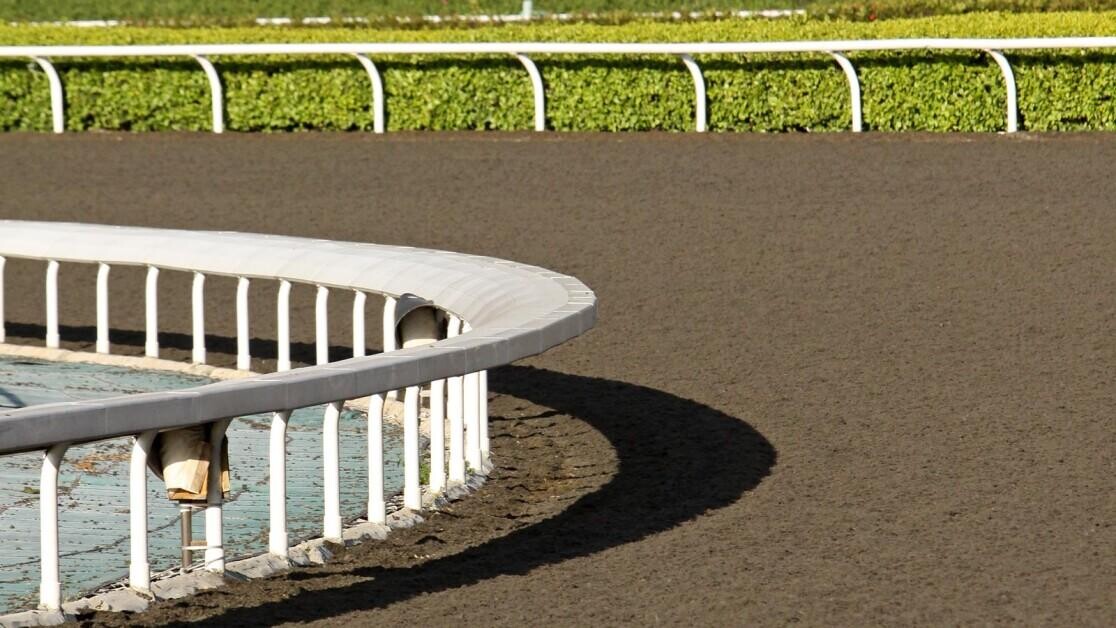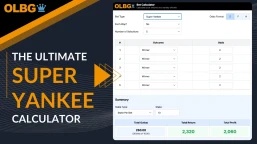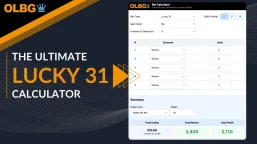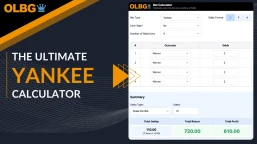
Many people bet based on headlines or hunches. I dig into research and market moves behind political odds & manager markets, so you can back decisions, not guesses.
Dive into the dynamic world of Ante Post Betting with our detailed guide. Before visiting your bookmaker, you'll find powerful strategies to boost your sports betting game. Uncover valuable information, minimize risks, and maximize your winnings by understanding Ante Post Betting in-depth.
Bet Like a Pro with Our Ante Post Betting Guide! 🚀
Ante Post Introduction
This article will investigate the definitions and origins of ante-post betting.
- We will explore its advantages and disadvantages and compare and contrast day-to-day markets with ante-post markets.
- We will research all the best sports for your ante-post money alongside the best tips and strategies from many OLBG betting experts.
- We will advise you on the many rules and regulations so you can avoid any disputes with your ante-post bets.
- Finally, we shall answer the most common questions on the subject, leaving you fully armed with all the ante-post betting knowledge you will ever require.

Warning - It is not advised to use welcome offer free bets for Ante Post betting as often they do not qualify or can complicate the qualification process.
The Importance Of Ante Post Betting
Ante-post odds can be available a year before the event, and these “early” odds give you, as the punter, an insight into how the bookmaker thinks the event will unfold.
When you engage with an ante-post market and follow it through to the start of the event, you will be better informed than the bettor who is looking at the odds for the first time on the day.
If you decide to place an ante-post bet on many occasions (but not all), you will receive a much better value on your selection than others.
If you want your betting to be profitable (as we all do), then ante-post betting should be a consideration.
Below is a football example of ante-post odds. You can then see the Semi-Final odds when there are just four teams left.
All four Semi Finalists are much shorter prices than their initial odds, had you backed any of Man City, Real Madrid, AC Milan or Inter Milan ante post then you were in with a chance of a big payout because you had taken the ante post odds.
UEFA Champions League 2022/23
| Champions League 2022/23 | Ante Post Odds | Semi Final Odds |
|---|---|---|
| Man City | 3.5 | 1.5 |
| Liverpool | 6 | |
| PSG | 6.5 | |
| Bayern Munich | 7 | |
| Real Madrid | 10 | 4.5 |
| Tottenham | 17 | |
| Chelsea | 17 | |
| Barcelona | 21 | |
| Atletico Madrid | 36 | |
| Juventus | 41 | |
| Inter Milan | 51 | 7 |
| Borussia Dortmund | 51 | |
| AC Milan | 66 | 9 |
| RB Leipzig | 101 | |
| Ajax | 101 | |
| Dinamo Zagreb | 101 | |
| Porto | 151 | |
| Napoli | 151 | |
| RB Salzburg | 201 | |
| Eintracht Frankfurt | 251 | |
| Bayer Leverkusen | 251 | |
| Sevilla | 251 | |
| Celtic | 251 | |
| Rangers | 251 | |
| Marseille | 251 | |
| Benfica | 301 | |
| Sporting Lisbon | 501 | |
| Club Brugge | 501 | |
| FC Copenhagen | 751 | |
| Viktoria Plzen | 1001 | |
| Maccabi Haifa | 1001 | |
| Shakhtar Donetsk | 1001 |
What is Ante Post Betting?
Ante-post betting is a form of wagering in which bets are placed on events before they occur, often weeks or even months in advance.
Definition and Origin of Ante Post Betting
The word ante comes from the Latin for the word before. The post part is derived from a stake in the ground that signalled the start of a race. It is thought the term started in the 1800s.
Therefore, ante-post means before the post or before the race starts.
Ante Post Comparison with Standard Betting
It is always good to have a choice, ante post betting gives us the choice. Your liking or disliking of ante post betting when you compare it to standard betting may come down to:
1. How risk averse you are
If as a personality you are risk averse and choose the preservation of your betting money over the chance of a higher but riskier return then ante post may not be your bag.
2. How much of a value bettor you are.
Value betting as explained in many an OLBG article is betting on a selection that is more likely to win than the true probability implies.
In a two runner race each horse has a 50% chance of winning the race, if the bookmakers offer odds of 2.10 or above on any of the horses that could be deemed a value bet.
The implied probability of the odds only give it a 47.6% chance but we know the true chance is 50%. If you can get 3.00 that is even better value in a two runner race.
Ante post betting can give you the best value option.
| Real | Odds | Implied | Difference |
|---|---|---|---|
| 50% | 1.50 | 66% | +16% |
| 50% | 2.00 | 50% | +/-0 |
| 50% | 2.10 | 47.6% | -2.4% |
| 50% | 2.25 | 44.4% | -5.6% |
| 50% | 2.50 | 40% | -10% |
| 50% | 2.75 | 36.4% | -13.6% |
| 50% | 3.00 | 33.3% | -16.7% |
Advantages and Disadvantages of Ante Post Betting
| Ante Post - Pros | Ante Post - Cons |
|---|---|
| Lock in the biggest and best odds. | A bigger price is on offer on the day. |
| The ability to trade out having taken the biggest price. | Risk of selection not getting into the contest. |
| Trainer/Team Form improves as the race gets nearer. | Trainer/Team Form deteriorates as the race gets nearer. |
| Lack of up to date information | |
| Injury |
Let's look at real life scenarios such as the Cheltenham Festival 2024.
On the 26th of December 2023, The Nicky Henderson trained Sir Gino was 12/1 for the Triumph Hurdle; after winning at Kempton on the 27th of December, the odds were cut to around 7/1. It was then entered for the Triumph Hurdle Trial at Cheltenham in late January, taking on a possible star in the shape of Burdett Road.
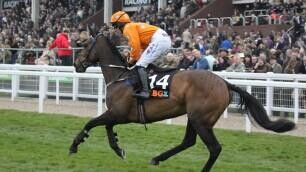
Triumph Hurdle Preview, Tips, Runners & Trends (Cheltenham Festival)
After winning that race easily, it was made favourite for the Triumph Hurdle on the Friday of the Cheltenham Festival. At the time of writing, a week before the race, the best price you can get is 10/11. Many bookmakers are a lot shorter.

On the reverse another Henderson horse Constitution Hill was a very short priced and well backed favourite (1/3) to defend his Champion Hurdle crown before missing the race due to illness. Any ante post bets would be lost.
You have to decide when betting ante post if the price of any selection outweighs the risk. You will not get every ante post bet right, but you do not need many 12/1 shots to win for a profit to be made.
You may want to consider looking at our Cheltenham Free bets page if you are considering having a punt at the festival this year
Ante Post Horse Racing Betting
It is horse racing where Ante Post betting became popular. In days gone by punters needed to post bets to their turf accountant so needed odds on an event way in advance. The bookmakers started pricing up races in advance partly to gain publicity from national newspapers, this heightened interest in horse racing especially when ante post odds were quoted for the Classic Flat Races.
Those in the know such as trainers, stable staff, owners could also take advantage of ante post odds and them placing bets alerted the layers to which horses were fancied, thus enabling the bookies to shorten fancied horses. Punters started to notice that the ante post odds were generous in comparison to the day of the race market and ante post horse racing betting grew.
In the 21st century with the advance of technology there is now so much available data that both the punter and the bookmaker are better informed yet large ante post odds are still on offer due to the fact that more bets are now placed with the bookie looking for a "balanced book" which guarantees them a profit whatever happens in a race.
Bookmakers Balancing The Book
Understanding bookmakers
The bookmakers are still looking for a "steer" from well informed punters and are quick to cut ante post odds from shrewdies.
Grand National
Below are the ante post odds for the Aintree Grand National from three of the best betting sites in the UK.
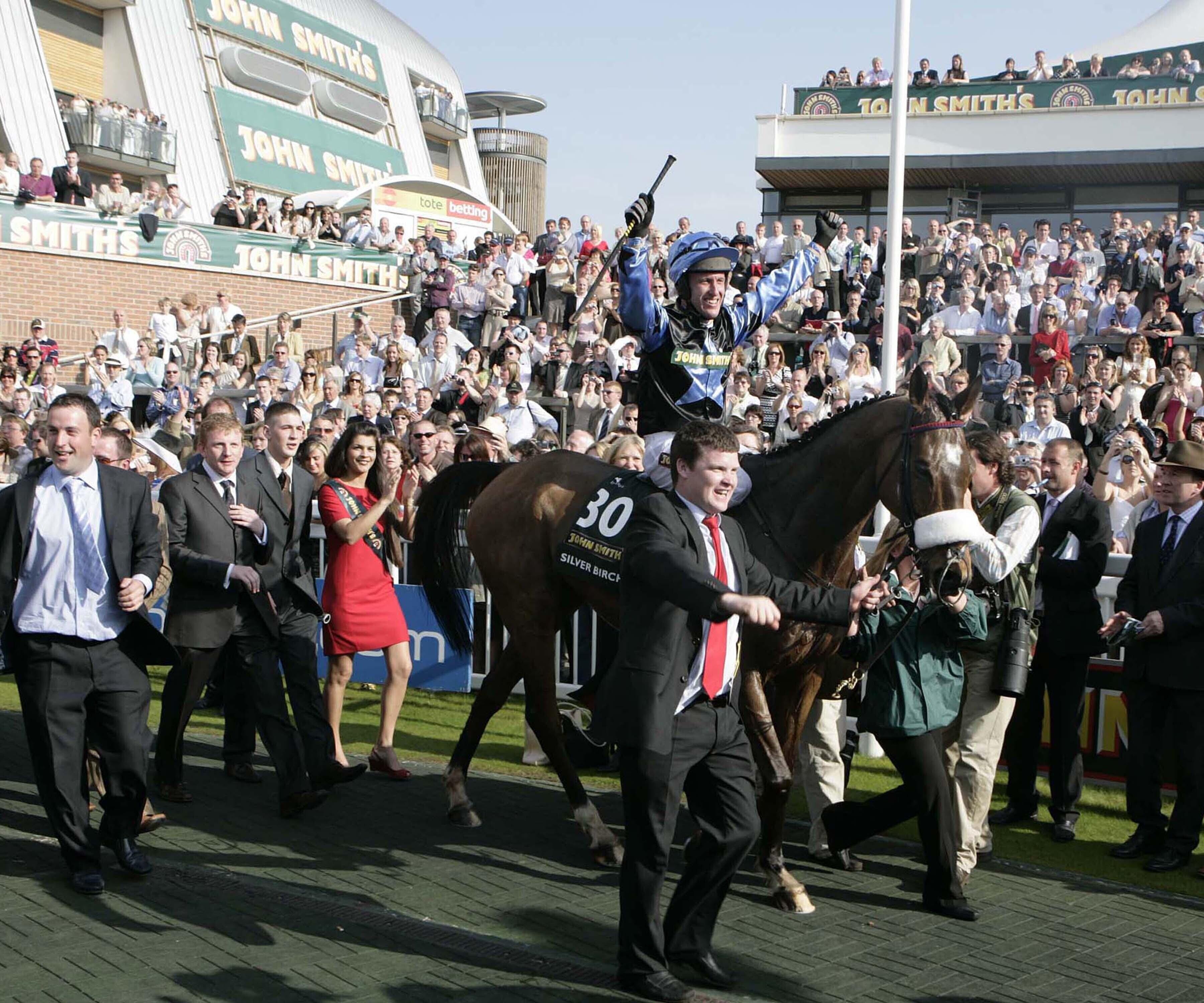
The Grand National prices were recorded in March a month ahead of the race, many of these runners will not line up or get into the race with a maximum field of only 34.
The ante post betting plan should be to find a runner whose odds are generous.
Here is the Grand National Ante Post Betting a month in advance
| Grand National Horse | Bookmaker | Bookmaker | Bookmaker |
|---|---|---|---|
| I Am Maximus | 11 | 11 | 11 |
| Corach Rambler | 13 | 13 | 13 |
| Vanillier | 13 | 11 | 11 |
| Mahler Mission | 17 | 15 | 15 |
| Noble Yeats | 17 | 15 | 15 |
| Kittys Light | 21 | 21 | 21 |
| Galvin | 21 | 21 | 21 |
| Meetingofthewaters | 21 | 21 | 17 |
| Capodanno | 26 | 21 | 21 |
| Chemical Energy | 26 | 21 | 26 |
| Panda Boy | 17 | 17 | 17 |
| Latenightpass | 34 | 26 | 26 |
| Monbeg Genius | 26 | 34 | 26 |
| Delta Work | 34 | 34 | 34 |
| Minella Indo | 34 | 26 | 26 |
| Nassalam | 34 | 26 | 26 |
| Threeunderthrufive | 34 | 26 | 34 |
| Limerick Lace | 41 | 26 | 34 |
| Hewick | 34 | 34 | 34 |
| Stattler | 34 | 26 | 34 |
| Coko Beach | 41 | 41 | 41 |
| Conflated | 41 | 41 | 41 |
| Mr Incredible | 41 | 21 | 34 |
| Aint That A Shame | 34 | 34 | 34 |
| Annual Invictus | 51 | 51 | 51 |
| Desertmore House | 51 | 51 | 51 |
| Glengouly | 51 | 34 | 34 |
| James Du Berlais | 51 | 34 | 41 |
| Letsbeclearaboutit | 51 | 51 | 51 |
| Salvador Ziggy | 51 | 34 | 34 |
| The Goffer | 51 | 41 | 41 |
| Galia Des Liteaux | 41 | 26 | 41 |
| Shakem Uparry | 67 | 67 | 67 |
| Mac Tottie | 67 | 51 | 67 |
| Highland Hunter | 67 | 41 | 51 |
| Fakie Dalene | 67 | 67 | 67 |
| Adamantly Chosen | 67 | 67 | 67 |
| Farouk Dalene | 41 | 51 | 51 |
| Eldorado Allen | 67 | 51 | 67 |
| Janidil | 51 | 51 | 51 |
| Ash Tree Meadow | 67 | 41 | 51 |
| Where It All Began | 51 | 34 | 41 |
| Iron Bridge | 67 | 67 | 67 |
| Riaan | 67 | 51 | 67 |
| Classic Getaway | 51 | 51 | 51 |
| Eklat De Rire | 67 | 67 | 67 |
| Foxy Jacks | 51 | 41 | 51 |
| Ontheropes | 67 | 67 | 67 |
| Amirite | 67 | 41 | 51 |
| Malina Girl | 67 | 41 | 51 |
| Famous Bridge | 41 | 67 | 51 |
| Longhouse Poet | 51 | 41 | 41 |
| Angels Dawn | 67 | 34 | 41 |
| Roi Mage | 67 | 51 | 67 |
| Gevrey | 51 | 67 | 51 |
| Minella Crooner | 41 | 34 | 51 |
| Fiddlerontheroof | 101 | 67 | 101 |
| Good Boy Bobby | 101 | 101 | 101 |
| Kinondo Kwetu | 101 | 101 | 101 |
| Macs Charm | 101 | 67 | 101 |
| Samcro | 101 | 67 | 101 |
| Run Wild Fred | 67 | 101 | 67 |
| Chambard | 101 | 101 | 101 |
| Asterion Forlonge | 67 | 51 | 101 |
| Tullybeg | 101 | 101 | 101 |
| Frontal Assault | 101 | 101 | 101 |
| Revels Hill | 101 | 101 | 101 |
| Empire Steel | 67 | 101 | 101 |
| Diol Ker | 101 | 67 | 101 |
| Mister Coffey | 101 | 101 | 67 |
| Fantastic Lady | 101 | 67 | 67 |
| Dunboyne | 101 | 67 | 67 |
| Favori De Champdou | 67 | 51 | 67 |
| Bronn | 101 | 101 | 101 |
| Busselton | 101 | 67 | 67 |
| Fury Road | 101 | 67 | 101 |
| Tommie Beau | 67 | 151 | 101 |
| Cepage | 201 | 151 | 101 |
| Embittered | 201 | 151 | 101 |
| Full Back | 201 | 201 | 101 |
| Moroder | 201 | 201 | 101 |
The Cheltenham Gold Cup
One of the biggest ante post betting races is the Cheltenham Gold Cup. The Blue Ribbon of the Festival has been won by the favourite four times between 2014 and 2023, with those horses having been much bigger ante post prices.
Ante Post horse racing is not solely available in the UK and Ireland; many of the big continental races have in advance odds.
There are ante post odds on offer for races in Australia, Dubai, Hong Kong, India, Dubai, France, USA including.
- All Aged Stakes
- All Star Mile
- Australian Cup
- Australian Derby
- Australian Oaks
- Caulfield Cup
- Country Championship Final
- Cox Plate
- Dubai Turf
- Dubai World Cup
- George Ryder Stakes
- Godolphin Mile
- Golden Shaheen
- Golden Slipper
- Hong Kong Derby
- Karrakatta Plate
- Kentucky Derby
- Kentucky Oaks
- Melbourne Cup
- Prix de l Arc de Triomphe
- Queen Elizabeth Stakes
- Sheema Classic
- The Everest
Ante Post betting on races just from abroad would see you fairly busy throughout the calendar year. Many of these races are covered in more detail in the OLBG Horse Racing blog section, below are some examples.

Kentucky Derby Preview, Tips, Runners & Trends
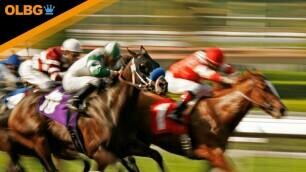
Melbourne Cup Preview, Tips, Runners & Trends (Melbourne Cup Carnival)
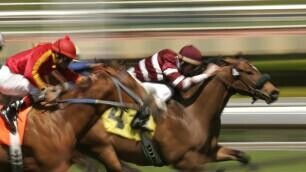
Dubai World Cup Preview, Tips, Runners & Trends (Dubai World Cup Night)
Tips and Strategies For Ante Post Horse Racing
The first crucial tip is that you will tie up some of your available betting funds when ante-post betting. Some punters bet on the Guineas, Oaks, and Derby the year before, or as soon as the trials take place, you could have funds tied up for nearly a year.
Trading or Hedging your bet is a consideration. If you have backed a horse at 33/1 and it is now a 5/1 favourite, many would choose to lay their ante-post bet on a betting exchange. You can read more about trading and hedging your bets in the ultimate guide to using a betting exchange.
Shop around for the best price; you will see lots of variation in bookmaker prices. In the 2024 2000 Guineas, the second favourite, Henry Longfellow, is as short as 4/1 with one firm and as big as 7/1 with another.
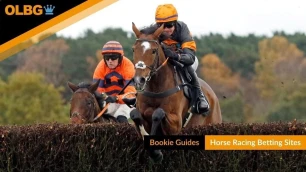
Best Horse Racing Betting Sites 2025
Ante-post betting may have a limit with an individual bookie, while another may be more generous. Splitting your stakes across multiple firms is a way around this.
Be aware that your horse may have entries in different races. If you back a horse ante-post to win the Aintree Grand National and it decides to miss the race in Liverpool and go for the Scottish Grand National instead, your bet will be lost.
Also, note that Best Odds Guaranteed does not apply to ante post.

Best Odds Guaranteed Sites UK – Compare Bookies’ BOG Times & Offers
Understanding Horse Racing Form
If you are a form student, you will know the contenders' strengths and weaknesses for a race. The majority of ante-post races are top-class events, so the horse you are supporting needs to have shown the requisite qualities to compete at that level.
Please check the OLBG blog on the race and see whether your selection fits the trends and profiles of previous winners.
Trainers
In many of the Group 1 and Grade 1 races, there are dedicated trials, such as the Supreme Trial or Lingfield Derby Trial. Winning or doing well in these races will cut the ante-post odds on a selection but should give you confidence that you are sitting on a bigger-priced ticket.
If a race is being held abroad then the cost of travel may be a consideration, especially if the horse hails from a smaller stable.
When placing your ante-post bet, you may not know which jockey will ride the horse, but booking a top jockey is another indicator that the trainer and owners are serious about winning the prize.
The Importance In Timing
When you place your ante post bet, check the different entry stages. As runners withdraw or decide not to enter, the odds change. When a field becomes smaller, is your selection still value? Should you top up with another bet?
Take special note of the five-day and 48-hour declaration stages.
Ante Post Caution
Ante Post Sports Betting (Non-Horse Racing)
With the growth of sports betting we now have a host of ante post betting markets away from horse racing.
Football, Golf and Tennis are especially popular with ante post punters.
Ante Post football betting is when you place bets on the outcome of tournaments, leagues, and competitions well in advance of the result being known.
The odds are usually competitive and since many bets are placed before the season starts punters are taking a long term view.
- Outright Winner
- Promotion
- Relegation
League or Cup outright betting is probably the most popular ante post football bet, this involves picking the winners or placed/promoted teams or relegated teams of a given competition.
Ante post each way betting is also on offer.
Leicester City Champions
Popular Ante Post Competitions
The biggest European leagues are the most popular for Ante Post football bets.
We then need to add ante-post bets in the premier cup competitions for each of those countries
- England: FA Cup
- France: Coupe de France
- Germany: DFB Pokal
- Italy: Coppa Italia
- Spain: Copa Del Ray
Within those individual countries and league competitions, we can place ante-post bets on:
- Outright Winner
- Finalists
Furthermore, within those top leagues, we can place ante-post bets on
- Relegation
Moving to the lower leagues, we can again place ante-post bets on:
- Promotion
- Relegation
As you can see by the myriad of choices the ante post markets give you lots of opportunities and we have not mentioned the World Cup, European Championship, AFCON, Copa America, Champions League, Europa League, Europa Conference League plus all the smaller cup competitions such as the League Cup in England.
Team Changes
Overall the bookmakers have expanded their ante post market offering on football with some very obscure leagues now available ante post.
If you want a bet ante post and the odds are not available send them a message and they may well offer you a price on your selection.
To check all the current football odds and read members comments on which teams they are supporting please visit the OLBG Football Tips pages.
Pre Season Ante Post Acca
Accumulators
Golf Betting
The four majors which take place in April, May, June and July are available to bet on at the start of the year.
The same players tend to head the betting for all the majors before the first one the US Masters.
As the season progresses other players who are showing good seasonal form become more prominent in the betting.
Punters look towards those who played well in the preceding major for many of their next bets.
Each way betting is on offer and selected bookies often go six places in the ante post market, Paddy Power, William Hill, Star Sports are noted as paying six places in many of the majors.
April - US Masters

US Masters Golf Betting Tips Guide
May - US PGA

PGA Championship Betting Tips Guide
June - US Open
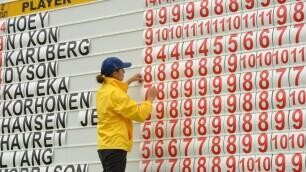
US Open Golf Betting Preview & Trends
July -Open Championship

Open Championship Betting Tips Guide
Tennis Betting
As with the golf majors, the Grand Slam tournaments are the biggest ante-post tennis betting event. You often see a changing of the guard after a period of domination by a handful of players. The ante-post skill is recognising which of the new breed of players is ready to take on the established stars. In recent years we have seen Carlos Alcaraz, Jannik Sinner, and Emma Raducanu winning tournaments when not especially fancied.
January - Australian Open

Australian Open Tennis Preview, Stats & Analysis
May - French Open

French Open Tennis Preview, Trends & Analysis
June - Wimbledon

Wimbledon Betting Tips Preview, Trends & Analysis
August - US Open

US Open Tennis Betting Strategies & Statistics
Key Considerations For Ante Post Betting On These Sports
- Player form a few months ahead of a tournament.
- Does the player like the playing surface
- Has the player excelled at the venue in previous years
- Does the player have the skillset for the event
- How competitive are the players in the ante-post market
- Has the player any injury worries
- What is the betting market indicating
- Does the ante-post bet offer betting value
- Could the betting market offer hedging opportunities
- Will your betting bank cope with tying up betting funds for a long period.
Strategies for Non-Horse Racing Ante Post Betting
- Look at past performances at the tournament, a player that has performed well previously may have a liking for the event or on the reverse a dislike.
- When you look at the ante post odds can you see a scenario where your selection will progress.
- Calculate the risk using the odds convertor tool, see what percentage chance the odds imply.
- Look to alternative tournament markets such as to make the cut or reach the semi finals.
- Consider each way odds.
- Check all the players, will a non runner give your selection an even better winning chance.
- Should you narrow down the field to a couple of bets and not put all your eggs in one basket
- Shop around for the best ante post odds.
- Check any bookmaker specials or free bets on the event.

Top Bookmakers for Free Bet Clubs
Rules of Ante Post Betting with Bookmakers
Bookmakers tend to use the same set of ante-post rules. However, you will need to check your bookmaker terms.
Most rules cover the United Kingdom; beware of different conditions in alternative countries or territories.
You need to understand the specific terms and conditions when placing your bet.
Below is an example from a leading UK bookmaker.
- Ante-Post bets are declared void if a race is abandoned and doesn’t occur later at the same venue.
- If your selected race or meeting is postponed, your bet stands if it’s run at a later date at the same venue.
- If a bet is placed after the final declarations, and the race is then postponed all bets are void.
- Each-way ante-posts are settled according to the advertised terms when the bet was placed. They can be included in most bet types, including speciality bets, although any built-in bonuses or consolations specific to certain speciality bets do not apply (e.g., double the odds of one winner on a Lucky 15/31/63 bet).
- The race is declared void.
- The race is moved to a different venue.
- The selection is balloted out - horses can be declared for a race but the maximum field size has been exceeded, it then refers to a ballot to which horse drops out.
- The selection was ineligible for the race at the time of the bet.
- It’s not possible for the selection to win when the bet is struck.
- The Ante Post bet is offered “with a run”, a specific Ante-Post bet where stakes are not lost on the non-running horse (NR/NB).
Please be aware of maximum payouts if you are skilled or lucky enough to place a huge winning ante post bet.
Below is a further example from a different UK bookmaker on Ante Post max payouts on football and horse racing
£500,000 Outrights (To win League/Competition) on the following leagues and cup competitions; FIFA World Cup Finals, UEFA European Championships, UEFA Champions League, English Premiership, Championship, Leagues 1 & 2, English FA Cup.
£250,000 Horse Racing - Great Britain & Ireland.
Smaller competitions in other countries will have lower maximum payouts.
How Rule 4 Deductions Affect Ante Post Bets
On OLBG.com we have a dedicated rule 4 blog that covers this subject in more detail.
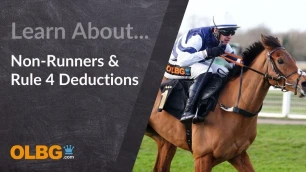
Mastering Rule 4 Deductions: Your Ultimate Horse Racing Betting Deductions Companion
Ante Post Recap
We hope you now have all the tools and knowledge to confidently place any ante post bets, as always be responsible when placing any bets.
Ante post betting can play an important part in your betting life and supply bigger priced winners that can be the difference to your yearly P and L.
The key rules when placing ante post bets are:
- Always look for value bets
- Always use the best betting sites with the best odds
- Back each way if the price dictates
- Be aware of hedging or trading your ante post bet
- Be selective
- Manage your betting bank
- Monitor the market
- Stay disciplined
- Understand the risk v reward
Apply This Guide for Future Betting
When placing ante post bets check back to this guide, alternatively bookmark the page.
If you are unsure of anything about your ante post bet send a message to your bookmaker, they will clarify the rules on specific sports.
The email team at OLBG can provide answers to general ante post questions.
Final Thoughts and the The Future of Ante Post Betting
Ante-post betting should always be considered; even if you do not place a bet, the market will provide clues to the bookie's opinion of an event, especially regarding who they have at the top of the market.
We are moving into an era of AI and AR, and that will shake up how ante post odds are created, managed and delivered to us.
As an industry, bookmaking is already embracing this new landscape with prediction modelling, where computers construct markets and manage liabilities with some of the human input being replaced.
If computers can do all the work and do those jobs very quickly then surely the ante post offering from bookmakers will expand.
The layers will not need a spreadsheet, pencil, or calculator or need to check the last six runs of the horse or discover how many times Arsenal have scored at home in December against other top six teams.
There may come a time where we have an AI created market and a Traditional created market and we will have the choice on which to bet with.
A plethora of computer generated odds can be conceived instantly, we can already ask questions and get detailed AI responses - imagine asking for a price on an obscure ante post bet builder and getting the reply within seconds
- I want to back the longest traveller to finish ahead of the horses ridden by Harry Cobden or Brian Hughes in the 2026 Grand National.
- I want to back Liverpool to win the next six games without any goals from Mo Salah being allowed.
- I want to back the number of putts Rory Mcllroy will card on the opening three holes of the US Open.
- I want to back the number of games that will be 40-40 in the opening round at Wimbledon.
AI technologies can monitor and analyse betting markets in real-time, identifying trends, anomalies, and inefficiencies; a person's opinion will likely play a much more minor role.
We foresee the ante-post market rebirth, and with technological change, could offer greater ante-post opportunities to punters looking to bet "against the crowd/machine."
FAQ
FAQ
Ante Post Betting
What is ante post betting
Ante post betting is where you place a wager on an event well in advance of the event taking place. It can also be known as futures betting.
What are the advantages of placing an ante post bet
Ante post betting markets can offer much bigger odds because the final line up is yet to be confirmed.
What are the disadvantages of placing an ante post bet
When you place an ante post bet you run the risk of your selection not taking part in the event. If the selection does not take part you will lose your money.
What is non runner no bet (NR/NB)
As the event gets closer the bookmakers have a clearer idea of all the participants, therefore they feel confident in offering a proviso that if your selection does not enter the contest they will return your money. NR/NB tends to be offered around a week before big events, however that is not always the case and you need to check.
Do i need a bigger betting bank for ante post betting
You will be tying up your money until the event is settled, you need to make sure that any ante post bets leave you enough funds to place your regular bets.
Why should i place an ante post bet
Because you will in many instances be rewarded with much bigger odds.
If for example you note that the form of a country that has qualified for the World Cup has gone under the radar of some of the bookmakers then you could receive much bigger odds before they have even arrived at the tournament.
You have to weigh up the risk v the reward, generally the more risk you take the higher the reward, the less risk, the lower your potential reward.
Should i check the ante post terms with my bookmaker
Yes always, do a double check that you understand the ante post bet.
What happens to my ante post bet if the event does not take place
If the event does not take place then your ante post bet will be refunded. Be aware though that in some cases if the event still goes ahead at a later day or different venue then the bet will stand. E.G: if they may move a race from Newmarket on the Saturday to Newbury on the Sunday.
Can i place ante post accumulators
Yes, you can. It will, however depend on whether the bookmaker will accept your acca bet and the liabilities involved.
Responsible Gambling
Whether ante post betting or placing bets on the day of the event, responsible gambling means adhering to a set of practices so that your gambling remains enjoyable and safe.
At OLBG, we have always trumpeted this approach.
The blogs below are a helpful guide to these practices.
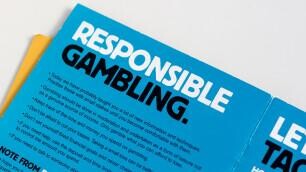
Responsible Gambling Features, Function and Help

How to be Sensible and Gamble Responsibly (Examples)
Further information is available via the BeGambleAware and GamCare links at the foot of each OLBG.com page.
Nigel Skinner created this ante-post-betting article. A keen watcher of the markets and occasional ante-post bettor, Nigel likes to try and discover which selections the bookies are concerned about and which they do not fancy. This guide has been formulated and updated over the years with plenty of input from OLBG members and the massed ranks of the OLBG Betting Experts. Facts were checked with the best betting sites, and any ante-post rule changes were added to the text.
